
Fermentation is normally defined as the “breakdown of a substance by bacteria, yeasts, or other microorganisms”. Fermentation is mostly associated with alcohol or in my view with brewing beer. In fact, the first “bakers yeast” was made from the foam of fermenting alcohol (1). These isolated yeast strains were beneficial to bakers for many reasons, but to my mind, the most important two is time (hence the cheesy wordplay in the title) and taste. Isolated yeast (or modern day bakers yeast) gave the baker the power to instantly bake a loaf of bread (or realistically two to three hours), and it did not affect the taste of the flour, i.e. the normal taste that has been associated with bread for the last couple of decades. Today when you think about bread it is either the tin loaf that is packaged in plastic that comes from the store or the more eccentric friend that says he can bake bread and presents you with something resembling a brick. This is obviously simplified, there are really great home bakers out there, as well as really good stores that sell “real bread”.
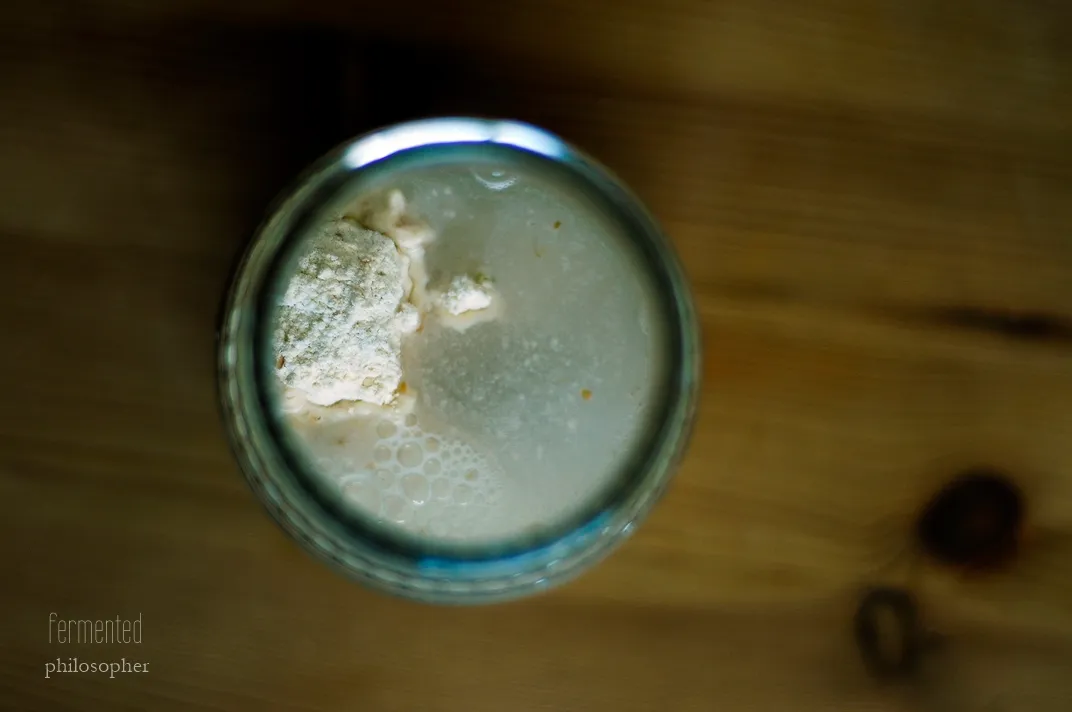
What is “real bread” and why is it in scare quotes? This may sound a bit pretentious and like a salesman trying to sell you something by claiming “the other products are not as good as this one. But here is the story. Bread has only been baked with “bakers” or isolated yeast in the last two hundred odd years. Normally bread was baked with what people nowadays call “sourdough”. What is “sourdough” some may ask legitimately? Sourdough can come in many forms, but the most common form in my mind is simply a collection of bacteria, yeasts, or other microorganisms that are contained by the baker through the use of a “levain”. This is simply equal parts of water and flour mixed together in something resembling pancake mixture. It is full of naturally occurring yeast and bacteria that is contained in the flour or the air we breath in. (Some beer brewers and winemakers have “naturally fermented” beer and wine, this is simply where the cask or fermenting vessel is left open for wild yeast to do the fermenting.)
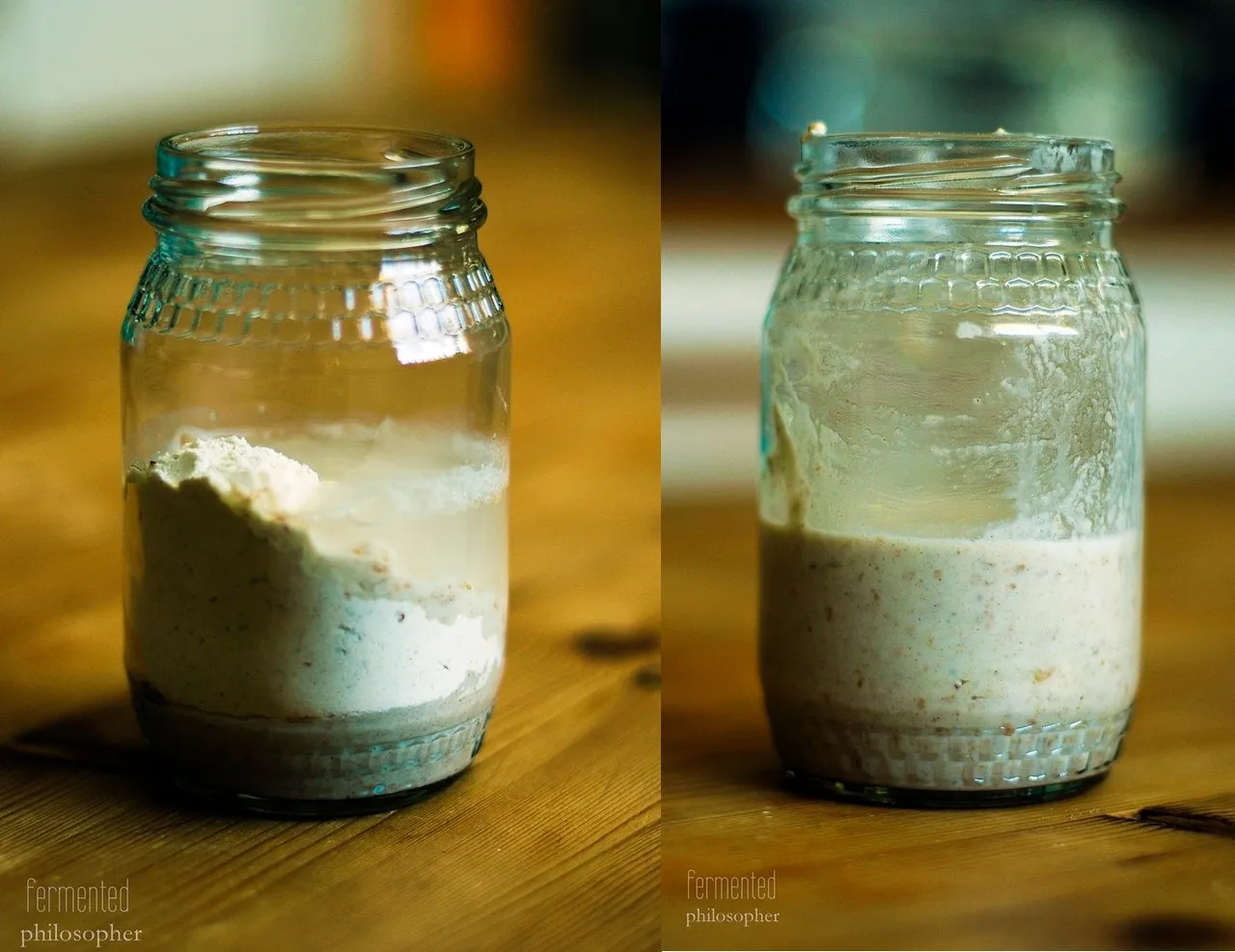
As seen in the picture above, water, flour and some of the leftover “levain” are mixed together to replace the “bakers yeast”. Bakers yeast is thus never used. What bakers in the past did was they used some of the previous or leftover “levain” to build up a new “colony” of yeast to be used for the next bake. This is of course not how everyone did it, but I think the easiest way to explain it. What I do, and I am sure other sourdough bread bakers is to keep a sourdough “pet”. Some people name theirs. Some sourdoughs are three generations old. Mine is one year old. You “feed” it regularly, the smell is sweet and pleasant. Now to try and answer a question that can be raised: why is bread today baked almost exclusively with bakers yeast? As mentioned in the discussion above, because of time and flavour. Let us discuss time first. Bakers yeast takes about 15-30 minutes to “wake up” depending on the temperature. The bread can be baked two or three hours after it was mixed. The whole process can be done within five hours, with minimal work. (There is an abundance of “no-knead bread” recipes that is a good way of entering the bread baking craze.) With sourdough, in my opinion, this is basically impossible. To “wake up” your sourdough “pet”, it takes minimum six hours. I normally leave mine overnight, or in other words twelve hours. The whole process of baking a sourdough bread can be done in minimum twelve hours. That is more than double the time it took to bake a bread with bakers yeast. The “normal” sourdough bread can thus take anywhere from 12 to 36 hours from start to finish.
The second reason is taste. The taste of a sourdough bread is different from that baked with bakers yeast. There are a lot of reasons, but two main reasons for me is once again time and the sourdough itself. The taste of a sourdough bread is very different from that of bread baked with bakers yeast because it had a lot more time to ferment. Bulk fermentation, or when the bread is fermented the first time, with sourdough bread is roughly four to six hours, where it is only one hour with bakers yeast bread. (Sourdough bread also undergo a “retard-fermentation” period in the fridge where the fermentation process is slowed down.) The second reason is that bakers yeast is isolated yeast, or yeast of a very “pure” form. It does not add flavour to the bread per se. Sourdough, on the other hand, is a combination of various yeasts and bacteria that impart a certain flavour depending on in which area you live. (Yes there is no one type of sourdough, the sourdough from South Africa will be vastly different from that of New York or London.)
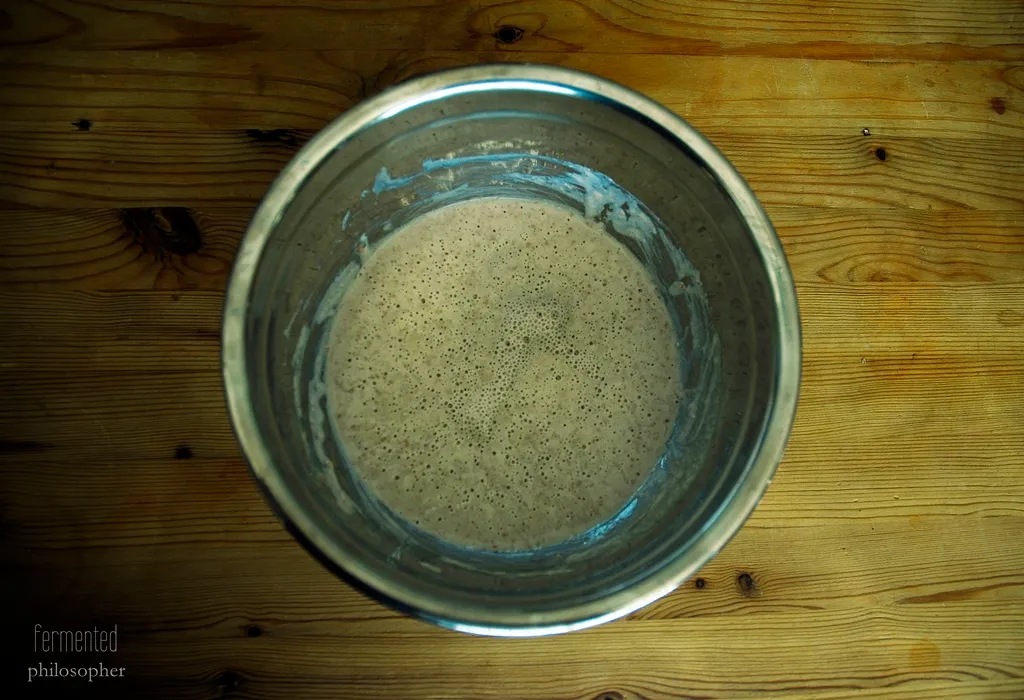
Sourdough (and other fermented food) is slowly coming back into our diets. If one thinks about it, one of the most effective ways of storing food without a refrigerator is by fermentation. Sourdough bread also lasts longer than normal bread due to the long fermentation time and the natural bacteria present in the bread. The reasons then, I hope, is clear why we moved away from sourdough bread: it takes a lot of time and the taste is not to everyone’s liking. (I know there is sourdough bread that does not have the distinct sour taste. For the sake of this article, I am thinking about sourdough bread that has undergone the “retard-fermentation” stage that sometimes imparts the typical sour flavour.)
As in the previous post or article, one may again ask what does philosophy have to do with bread baking? Or in other words, why even name philosophy and bread baking in the same sentence? I tried to claim in the previous article that philosophy is a lifestyle. I don’t know if I succeeded in creating a sound or good argument. If I did succeed, trying to argue for it again will be useless, if I did not, then the following argument won’t work for you. But let us accept that philosophy is a lifestyle and not just an academic endeavour. If we accept this, I want now to claim that bread baking and philosophy have time and the use of time in common. (Someone countered my arguments in the previous post and said that we can claim that anything in life is philosophy. I agree with this, but if you can give a good enough argument and reason why it should be accepted, or at least be heard, then why can’t you claim that philosophy and fermentation do indeed have things in common? It is up to the reader if they want to accept my claims and arguments.)
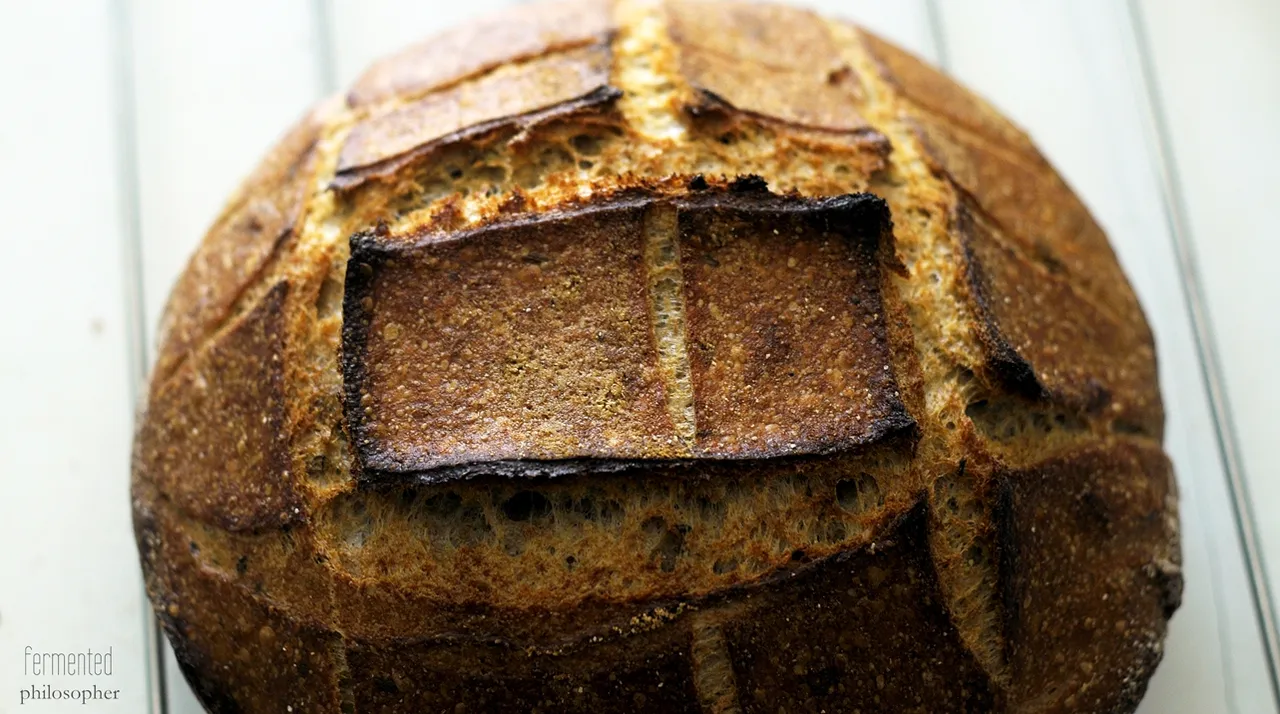
Now I will try to give an argument why time is important to the baker and the philosopher. (Even if I cannot make a good argument for why it is the same for the baker and the philosopher, I at least want to make the argument that time is important per se for the baker and the philosopher.) What do I mean by “time”? Simply that some things take time to develop. (This should not be interpreted as in ageing as mentioned in the previous post.) We are today obsessed with immediacy, we want something immediately. Delivering companies try to deliver things on the same day as when you ordered. When you go to a restaurant you want your food immediately. If you want to lose weight or gain muscle, you want to see improvement immediately. If you want to bake a bread at home, you don’t want to wait three days. If you don’t understand an argument immediately, you forget about it, or you only think about it when you are daydreaming. When you hear that brewing beer takes at least two months, in some cases, the appeal to brew your own beer is lost. (Once again this is not a blanket statement that applies to everyone, it is just a general tendency.) To wait for something, or to let time pass, today is something that most people do not want. Immediacy is king. If something takes time, the appeal is lost. We give bad reviews, we don’t buy the product or we don’t learn the new hobby and do something else that does not take the time.
The sourdough bread baker loves time. The passing of time, i.e. fermentation, is when the flavour of the bread is being developed. The overnight “retard-fermentation”, or the slow fermentation, is also why some people now claim that gluten-sensitive people can eat sourdough bread. With the time that passes, the bacteria and wild and natural yeast breaks down the gluten. The reason, for me, why people are gluten-sensitive is because “normal bread” is not fermented long enough. The bacteria and yeast do not have time to break down the gluten. I am no scientist, I cannot give a reason why this may be true, or if it is even close to the truth, but a lot of people with gluten-sensitivity can eat the bread that I’ve baked. The argument I want to make is that time is important because it lets the yeast and bacteria break down, amongst other things, gluten and carbohydrates. In my humble opinion, sourdough bread is healthier than any other bread.
How can this claim then be made for the philosopher? I hope it is obvious. The philosopher sits with a tough question or argument. It cannot be done in a single night before he/she needs to give a paper at a conference. The philosophy student cannot study for a test the night before without understanding the argument, and understanding the argument takes time. I struggled to grasp certain arguments and concepts in my undergraduate years, but if the problem interested me enough, I took time and read a lot of explanations of the arguments and claims. I tried to understand the claims made by the philosophers, I tried to understand the argument. When you understand the argument, it is like a light switch that goes on in your mind. The understanding part is quick, exactly the same as with the light switch that goes on. It is immediate. But the process of understanding takes time, the laying out of the argument and the understanding of concepts takes time. Reading the articles and books takes time. The philosopher, or philosophy student, needs to take time to understand something, and to develop and structure the argument. It does not happen in an instant.
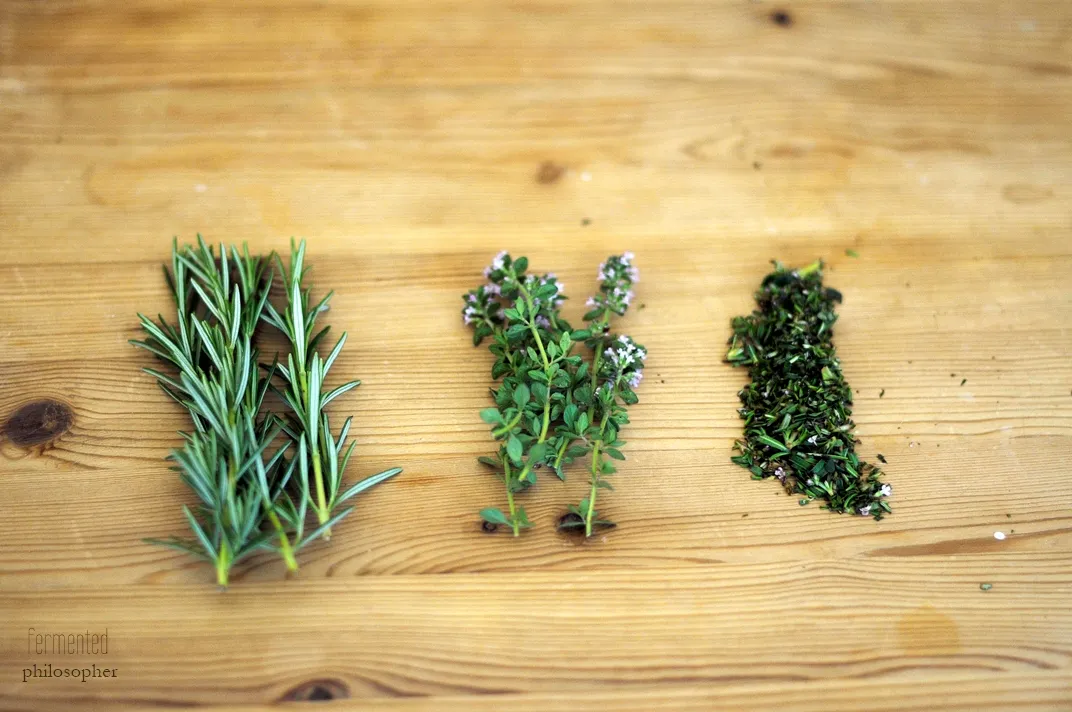
It takes time for a tree to develop enough roots to grow into a tree that can withstand winds. It takes time for a rosemary or thyme plant to grow into a bush so that the baker can pluck its leafs and use it in his/her bread. If a young tree or herb bush loses its leafs, it won’t grow. If you let time pass so that the roots can form and establish the plant, you will have an abundance of aromatic herbs to put into your bread. You will have a tree that provides shade on a hot day. Time is important for a lot of things, but especially for fermentation. Fermentation takes time (and thyme if you put it in a sourdough bread). It cannot be rushed. If you rush fermentation, the simple fact is that the process of fermentation will only be halfway done, or not even a quarter way done. If the philosopher does not contemplate his/her own arguments and claims over time, he/she will make mistakes or believe something without good reasons. It is too late to change it on stage in front of a thousand people. It takes time to write a good argument.
I am not trying to make the argument that we lost the ability to take our time in this era where immediacy rules. I am merely stating that some things cannot be rushed. If you want a good sourdough bread, or in fact just a good bread that does not make you feel bloated, a long fermentation period is the answer. This is why “normal bread” is not “real bread”, because for centuries we as a bread eating world used a slow fermentation process. Our “normal bread” now is not the same as what used to be bread. The same for the philosopher. The philosopher cannot walk onto the stage without prior work done on the arguments and claims. The philosopher needs to “ferment” his/her ideas, give them time to develop into a good and strong argument. Some things in life take time. We should not forget that.
Source
(1) Katz, S. 2012. The Art of Fermentation.
End Note
I just want to take the time to thank everyone who read my previous post. I don't know if this post will have the same success, i.e. I don't know if anyone will even see this thank you note. I hope that this reaches those who helped my previous post. Thank you very much.
